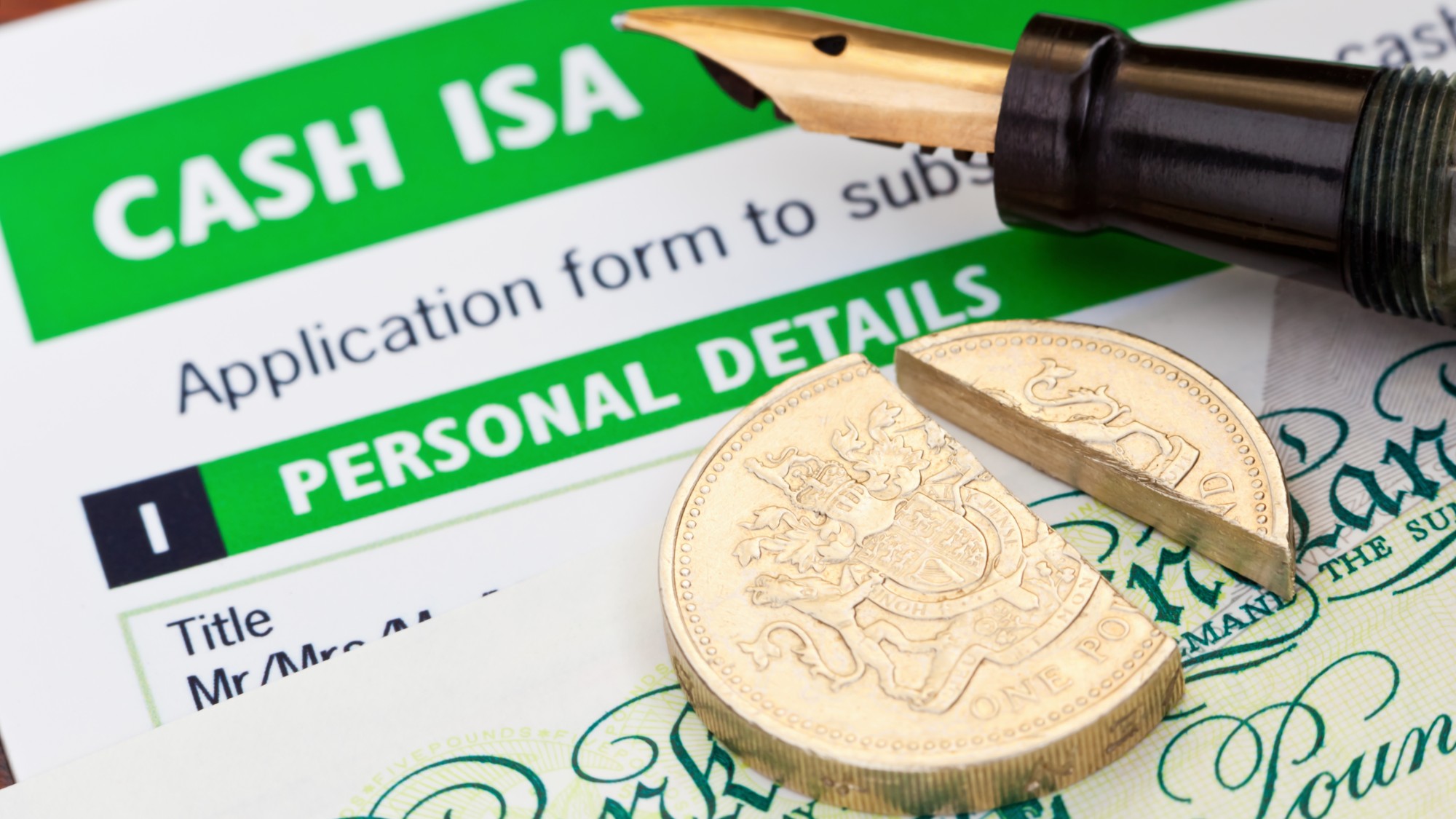Five alternatives to cash ISAs
Cash ISA allowances may be cut in the Autumn Budget, but there are alternatives

A free daily email with the biggest news stories of the day – and the best features from TheWeek.com
You are now subscribed
Your newsletter sign-up was successful
Cash ISAs are rumoured to be back in the Chancellor’s sights as she prepares her Autumn Budget.
Chancellor Rachel Reeves is set to “revive plans” for reform of cash ISAs, said the Financial Times, “to divert tens of billions of pounds of savings from cash into domestic stocks” and boost an investment culture in Britain.
Her previous Budget mentioned a review of the ISA system, and Reeves is now reported to be considering halving the cash ISA allowance to £10,000 in her next fiscal update on 26 November.
The Week
Escape your echo chamber. Get the facts behind the news, plus analysis from multiple perspectives.

Sign up for The Week's Free Newsletters
From our morning news briefing to a weekly Good News Newsletter, get the best of The Week delivered directly to your inbox.
From our morning news briefing to a weekly Good News Newsletter, get the best of The Week delivered directly to your inbox.
The hope is that this would “help boost economic growth while also providing better returns for savers”, said MoneyWeek.
However, it is unclear whether there will be any changes, and savers will still have time to take action in response to any potential reforms.
Savings accounts
Currently, savers can earn £1,000 of interest tax-free using the personal savings allowance, dropping to £500 for higher-rate taxpayers.
It may be worth putting money into a standard savings account instead of a cash ISA, said Rest Less, especially if “you’re confident that your returns won’t exceed your allowance”. But be warned, you don’t need “much money in savings” to breach the allowance.
A free daily email with the biggest news stories of the day – and the best features from TheWeek.com
A higher-rate taxpayer would go over their £500 personal savings interest allowance once their savings go above £11,000, while a basic-rate taxpayer would be hit once they have more than £22,000 saved.
Stocks and shares ISAs
Investing in the stock market through a stocks and shares ISA “can potentially gain more growth over time”, said Unbiased, compared with a cash ISA.
You can also lose money, “sometimes even all of it”, but on average, stock markets “consistently outperform most cash savings over longer periods”.
Money market funds
Investing in a money market fund serves a “very similar purpose” to a traditional savings account, said Fidelity.
A money market fund invests in different types of short-term debt, such as Treasury bills and certificates of deposit. The holdings in a money market fund are “very high quality, liquid and diversified”, the investment platform added.
They are “low-risk and stable”, but they are still an investment, so their value could drop “even if the chances of this are slim”.
Premium Bonds
Rather than paying interest, Premium Bonds offer customers the chance to win between £25 and £1 million tax-free in a monthly prize draw. The product is provided by National Savings and Investments and is backed by the government.
Here, the excitement of winning a tax-free prize is combined with the safety of a government-backed institution, which is what continues to make the option enticing to many.
But the odds of winning are low at 22,000 to one for every £1. There is no guarantee that you ever will win a prize, said MoneySavingExpert, and you “could earn nothing”.
Pension savings
Pension contributions benefit from an “effective 25% boost” thanks to tax relief, and all growth is tax-free too, said Unbiased.
You can withdraw the money in your pension from age 55, so putting more money into your retirement savings instead of a cash ISA shouldn’t be “discounted as an option”, especially if you are in your late 40s or older.
Marc Shoffman is an NCTJ-qualified award-winning freelance journalist, specialising in business, property and personal finance. He has a BA in multimedia journalism from Bournemouth University and a master’s in financial journalism from City University, London. His career began at FT Business trade publication Financial Adviser, during the 2008 banking crash. In 2013, he moved to MailOnline’s personal finance section This is Money, where he covered topics ranging from mortgages and pensions to investments and even a bit of Bitcoin. Since going freelance in 2016, his work has appeared in MoneyWeek, The Times, The Mail on Sunday and on the i news site.
-
 Magazine solutions - February 27, 2026
Magazine solutions - February 27, 2026Puzzle and Quizzes Magazine solutions - February 27, 2026
-
 Magazine printables - February 27, 2026
Magazine printables - February 27, 2026Puzzle and Quizzes Magazine printables - February 27, 2026
-
 ‘The forces he united still shape the Democratic Party’
‘The forces he united still shape the Democratic Party’Instant Opinion Opinion, comment and editorials of the day
-
 How to juggle saving and paying off debt
How to juggle saving and paying off debtthe explainer Putting money aside while also considering what you owe to others can be a tricky balancing act
-
 The pros and cons of tapping your 401(k) for a down payment
The pros and cons of tapping your 401(k) for a down paymentpros and cons Does it make good financial sense to raid your retirement for a home purchase?
-
 Saving for a down payment on a house? Here is how and where to save.
Saving for a down payment on a house? Here is how and where to save.the explainer The first step of the homebuying process can be one of the hardest
-
 Planning a move? Here are the steps to take next.
Planning a move? Here are the steps to take next.the explainer Stay organized and on budget
-
 What should you look out for when buying a house?
What should you look out for when buying a house?The Explainer Avoid a case of buyer’s remorse
-
 What to look for in a reliable budgeting app
What to look for in a reliable budgeting appThe Explainer Choose an app that will earn its place in your financial toolkit
-
 3 smart financial habits to incorporate in 2026
3 smart financial habits to incorporate in 2026the explainer Make your money work for you, instead of the other way around
-
 Why it’s important to shop around for a mortgage and what to look for
Why it’s important to shop around for a mortgage and what to look forThe Explainer You can save big by comparing different mortgage offers